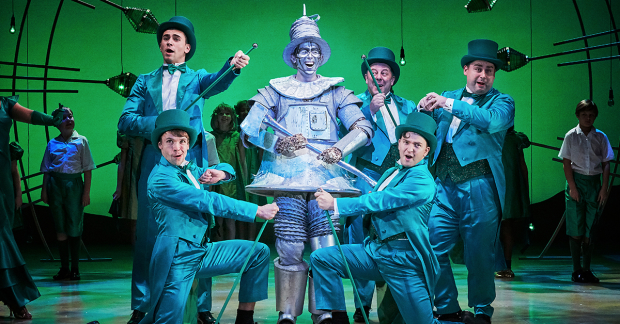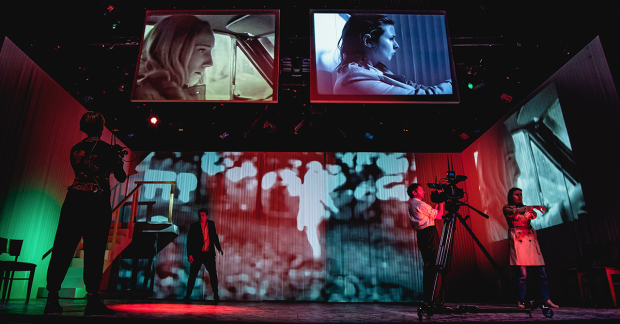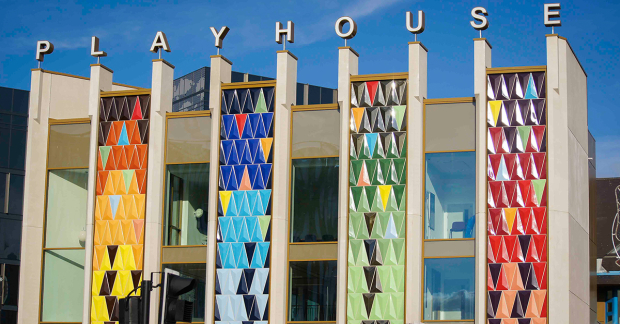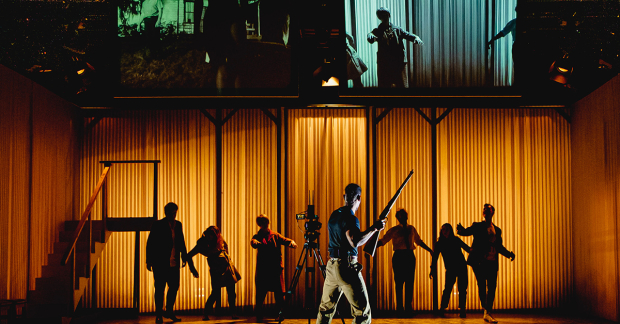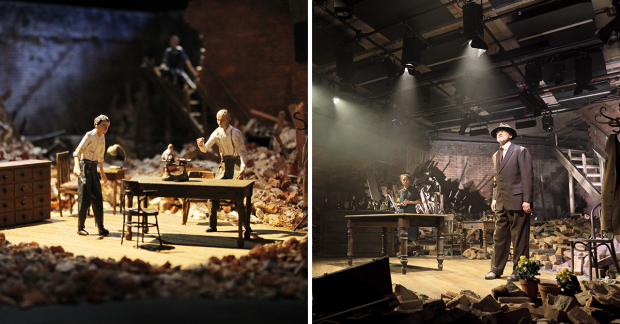Review: Dr Korczak's Example (Leeds Playhouse)
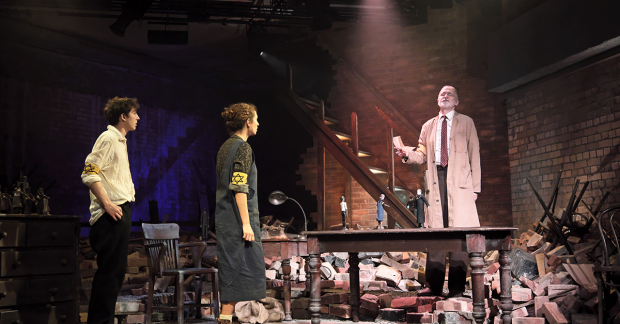
© Zoe Martin
Some 20 years ago James Brining, director of a young people's theatre company in Scotland, commissioned the play, Dr Korczak's Example, from David Greig. At that time it toured school halls in a simple staging. Now artistic director of Leeds Playhouse, Brining has revived the play in the theatre's new space, the Bramall Rock Void, and its origins show through in a positive manner. Educational as well as profoundly moving, it has a target audience of 12 plus and, with no upper limit, that seems spot on to me.
In the 1920s and 1930s Janusz Korczak (the pen name of Henryk Goldszmit) was a celebrated Polish Jewish doctor, educator, broadcaster and children's writer. His greatest achievement was his orphanage, run on remarkably liberal and progressive lines, including such things as a children's court and a newspaper that was issued as a supplement to an adult paper. The German invasion of Poland forced the orphanage out of its premises into the ghetto, and finally in 1942 Korczak and the orphans were marched out of the ghetto onto the trains for the death camp at Treblinka.
Dr Korczak's Example makes a major impact on a small scale: 80 minutes stage time and an audience capacity of about 80. The Bramall Rock Void can operate at double this capacity, but one bank of seats is replaced by bricks, rubble and wood piled apparently indiscriminately to the back wall – in Rose Revitt's designs the destruction of the ghetto (of civilised society?) is always before us.
Brining's production preserves the simplicity and the historical authenticity of the school-based production. At the start Rob Pickavance tells it how it is, gently insisting that all this happened, explaining who Korczak was and that he is going to act the part. Gemma Barnett and Danny Sykes hurtle down from the back of the audience to play two parts who, it is made clear, never existed as individuals, but represent many who did.
Adzio (Sykes), rescued by Korczak from the Nazi police, is brought to the orphanage where his whole life is the philosophical opposite to Korczak's view: cheat, hide, fight against the oppressor as against Korczak's desire to set an example of how decent civilised people live. In the short term both are probably doomed to failure and death, but both also had their effects in the long term: the final words over the PA are Korczak's inspiring Rights of a Child which became the basis for the United Nations' Convention on the subject. The most insightful is the pairing of "The right to education" and "The right to resist education" – wonderful!
Much of the play proceeds on a double narrative: the humanising effect (up to a point) on the feral street kid Adzio, partly as a result of his growing love for Korczak's unofficial assistant Stephanie (Barnett) whom he converts from non-aggression, and the moral debate between violence and example. All of this is conducted against a background of children's chatter, evocative music (David Shrubsole) and the occasional rifle shot.
The cast of three give beautifully judged performances, avoiding melodrama when at all possible. Pickavance perfectly combines gentleness and passion as Korczak, the man who is tormented by the need to say that everything is fine. Sykes as Adzio identifies with the flies that he so athletically kills ("as flies to wanton boys…they kill us for their sport" comes constantly to mind) and his face expresses a world of fear, aggression, hate and love. Barnett's alert and intelligent Stephanie radiates goodness, but also confusion.
The three actors take on other brief roles, aided by the use of small models which indicate who is actually present in the scene – a neat idea, but one which gains its full emotional power only in the final scene when Pickavance as Korczak sets up rows and rows of orphans behind the green orphanage flag as they go, singing, to the train yard.



